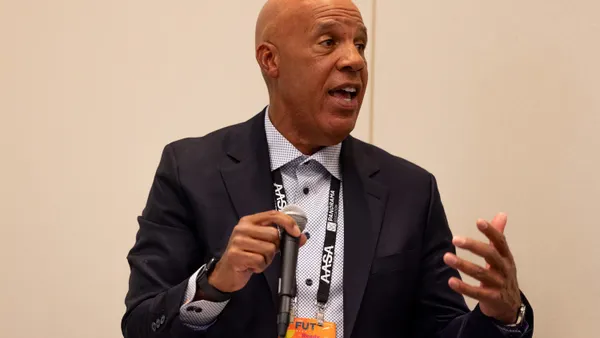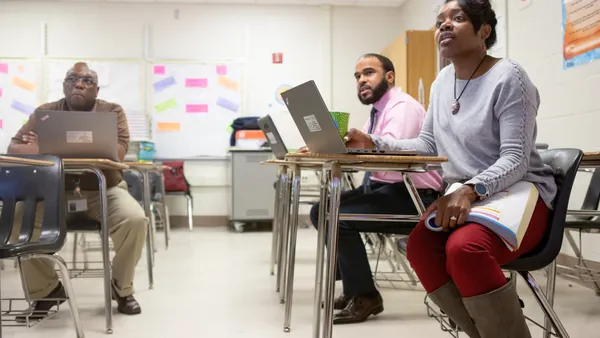Most clicked story of the week:
The U.S. Department of Education’s downsizing under the Trump administration has intensified debate among parents, special education advocates and policy experts about the federal government’s role in serving students with disabilities. Some critics of the Education Department’s Office of Special Education Programs say an overhaul is needed to improve responsiveness to parents’ concerns and school districts’ needs, while others have called for the office, which oversees implementation of the Individuals with Disabilities Education Act, to be eliminated altogether.
Advocates, however, have warned that shrinking the department would “decimate implementation of key education and disability laws.”
Policies in the spotlight
- California’s McKinleyville Union School District was making progress on a key mental health initiative, having won a $7.2 million grant in October 2024 from the U.S. Department of Education that would help it hire the equivalent of six full-time credentialed school social workers, psychologists or counselors over the next five years. The funds were also expected to help the district hire three full-time instructional coaches to implement a multi-tiered system of supports. However, almost five months into its mental healthcare system overhaul, the rug was pulled out from under the district’s plans when the Trump administration canceled those school mental health grants.
- There’s still no official plan from the Trump administration to move special education oversight from the U.S. Department of Education to another federal agency such as the U.S. Department of Health and Human Services. Over the past several weeks, however, advocates have sent multiple letters and hosted online forums to stave off such a transition.
- All Colorado public school students will continue to have access to free school meals after voters on Tuesday approved two state referendums, one of which — Proposition MM — will raise state income taxes for those earning an annual income of $300,000 or more. Backed by 58% of voters, Proposition MM will increase the average income tax by $486 for Colorado residents at that income threshold, providing an expected additional $95 million in annual revenue for the state to continue funding its universal school meals program approved by voters in 2022.
What’s working in classrooms?
- Some upsides of using artificial intelligence chatbots to help students improve writing and studying skills are that these tools can act as coaches or mentors when humans aren’t available, offering generic but reasonably good and “relatively creative” feedback to middle and high school students during brainstorming, says Sarah Levine, assistant professor at the Stanford University Graduate School of Education. On the other hand, she says, students sometimes “hand over the thinking work” of writing to bots, which create the end product quickly — and “they can do B-plus work all the time.”
- Teachers and school leaders can take certain approaches to ensure students with autism thrive in the classroom. Among the best practices are direct and multisensory instruction, role-playing and modeling behaviors, employing a variety of communication strategies, and being sensitive to overstimulating situations.
- Despite state and district leaders making significant progress in closing student access gaps to devices, internet and other technology, these gains haven’t led to “meaningful improvements in teaching and learning,” according to a report from the State Educational Technology Directors Association and other education organizations. The report said a “digital use divide” is persisting, at least partially due to a lack of sustained teacher professional development to help students engage in deeper learning experiences through technology — especially as AI becomes more prevalent.













